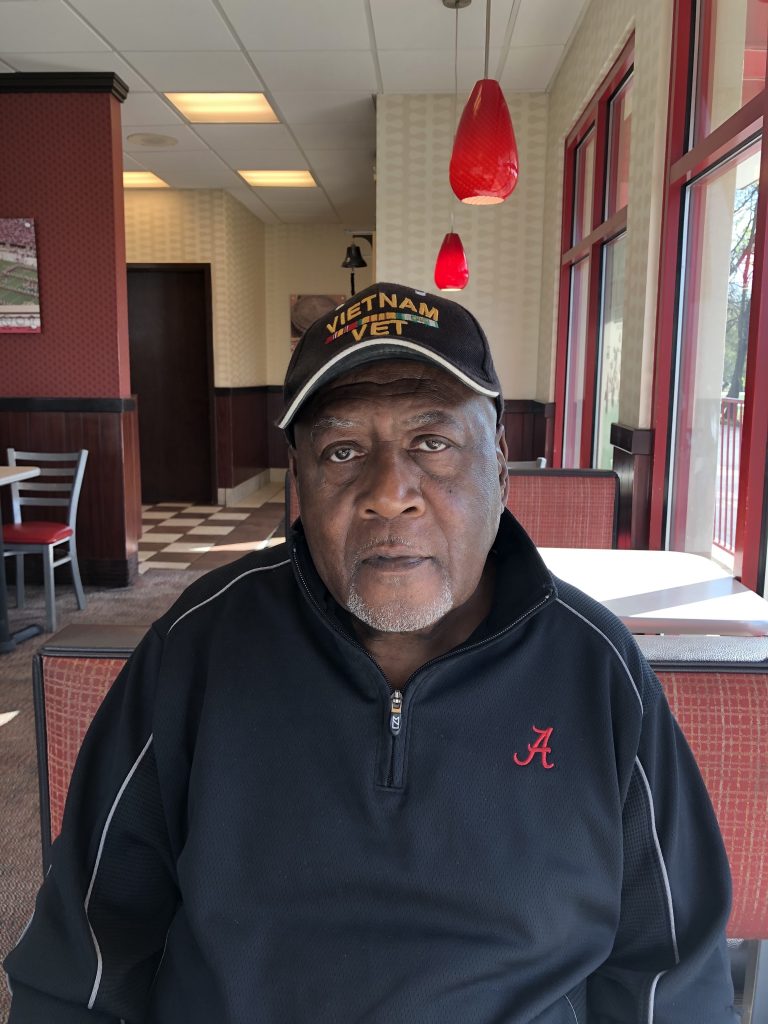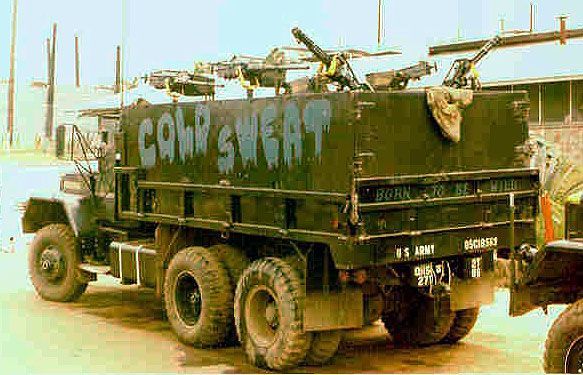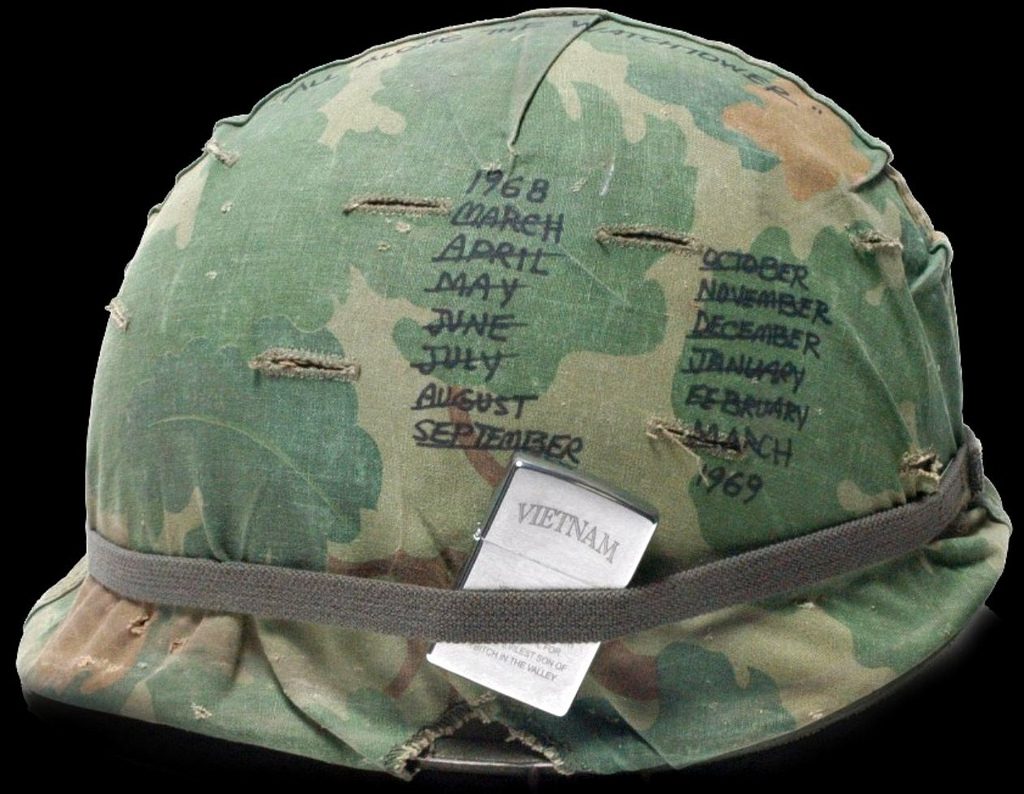
Early Life, Before the Draft
Mr. Willie Carter is a very inspiring and devout man and is always willing to do what is needed from him by his country. Mr. Carter got received his draft call when he was just eighteen years old. Carter was never a man to turn down his country. Before he was drafted Mr. Carter worked as a porter in a restaurant, one of the largest chains in Pittsburg, Pennsylvania. He also worked in New York as a fabric manufacturer. Before he started work in Pennsylvania he worked in Alabama, picking cotton and working in fields. Carter explained everyday life as being beautiful. He had no problem with the life he was living and knew he was on the right path. Carter received his draft call in 1967 and was ordered to report to Fort Jackson in California. Carter said since he was a kid he was use to doing what he was told to do, so he followed his orders and he went to Fort Jackson. Carter explained that he was not a draft dodger and that he didn’t think about burning his draft card or fleeing for Canada. Once he reported to Fort Jackson he informed them of his heart murmur condition and the six foot soldier looked down at carter and said, “Boy, we got a war going on in Vietnam, and you are it.” So Carter explained, “me and heart murmur went into service.”
Preparing for Vietnam
Willie Carter went to Fort Gordon for basic training then proceeded to Aberdeen, Maryland for Advanced Infantry Training or ATI. He stayed for fourteen weeks and trained to be a wheel and track mechanic. A track is any machine that runs on a track; he explained that a track is what you see under a big caterpillar machine. Carter says that he did everything except become a mechanic in Vietnam and that was his next destination. Carter left for Vietnam in 1967.
Arriving in Vietnam
Once his plane arrived he told a story about how the plane could not land because of enemy fire and that is when he began to feel scared. His first few hours in Vietnam he felt safer knowing that he had air- force and gunship support and then he felt a feeling of relaxation. His first orders in Vietnam was sandbag duty, he had to fill sandbags to build bunkers. Also he had to deliver food, ammunition, and supplies to troops in the field. He said without his duty the troops would never have gotten support. Four months

out of his year in Vietnam, Willie Carter was assigned to be a lightweight vehicle mechanic including: jeeps, three quarter ton trucks, five ton trucks, and ten ton trucks. Carter talks about the combat that he had seen while being in Vietnam as being very violent. He explains a story about how after a fire fight with the NVA that the American troops would pile the dead bodies of the NVA soldiers up and drench them with diesel fuel and light them on fire to get rid of them. Mr. Carter states that his biggest trigger for PTSD is the smell of diesel fuel, which brings his mind back to the gruesome ways of Vietnam. He stated in the interview that most of the NVA soldiers that were killed were young men of what looked about thirteen or fourteen years old. This would remind him later in his life when he was blessed with his children. He explained how much he cared for them and that he would do whatever is needed to protect them. The Tet Offensive was one of the most memorable battle of the Vietnam War. Late January had started the lunar new year in Vietnam and in 1968 the North Vietnamese and the communist Viet Cong launched a coordinated attack on several targets in South Vietnam. The North were able to take out a huge chunk of the United States and South Vietnamese military forces. Mr. Carter explains that Tet was a surprise and that Vietnam wanted a seize-fire because of the holiday, so the US pulled back. He said that the US troops were back at base taking a break and having a good time and late in the night, Carter explains, “all you get was rockets in on you.” He goes on to tell a story about how Lieutenants are suppose to be our fearless leaders, and that he heard on lieutenants was crying like a baby saying that he did’t want to die. So he saw a first sergeant pull his .45 and told the lieutenant, ” If you don’t get your ass in gear, you’re gonna die, from my gunshot!” Carter says that he remembers that moment like it was yesterday. Carter only spent one year and a week in Vietnam when he received word he was going home. Carter shared another

story about when soldiers knew when they were going home. He said, “You could tell when a guy was about to go home, they start yelling “Short!”…”Short” but the only thing about that, some of them never made it home. They yelled, “Short! Short! Short timer” and they caught a bullet before they could go home.” In Vietnam, soldiers knew they had a year until they could go home, but that could be taken just like a snap of your fingers.
Coming Home
Willie Carter talked about the hatred he received once he returned to the states. He was called names such as murderer of baby killer. He explained that he was treated like some people would treat a dog, he said all he could do was pray, “But after, I learned to pray for people , ignorant people.” Carter exclaimed that he is a part of many different organizations today. He is a member of the Disabled American Veterans (DAV), American Legion, and Vietnam Veterans of America. Carter stated that his organization of Vietnam Veterans of America feeds anywhere from two-hundred and fifty to two-hundred and eighty veteran families every Christmas. Willie Carter lived his life in a very positive way. Mr. Carter is a very proud American and always did what he was told. Carter also did what was required of him to help the country that he loved and he shows it by giving to the people of his many different organizations.
Further Readings
Lawrence, Mark A. “U.S. Intelligence Assesses the Damage.” page 121 in The Vietnam War: An International History in Documents. New York: Oxford University Press, 2014.
O’Brien, Tim. The Things They Carried. New York. Houghton Mifflin, 1990.
Military Factory. “Vietnam War Vehicles (1955-1975).” Accessed on 15 April, 2019. https://www.militaryfactory.com/armor/vietnam-war-vehicles.asp